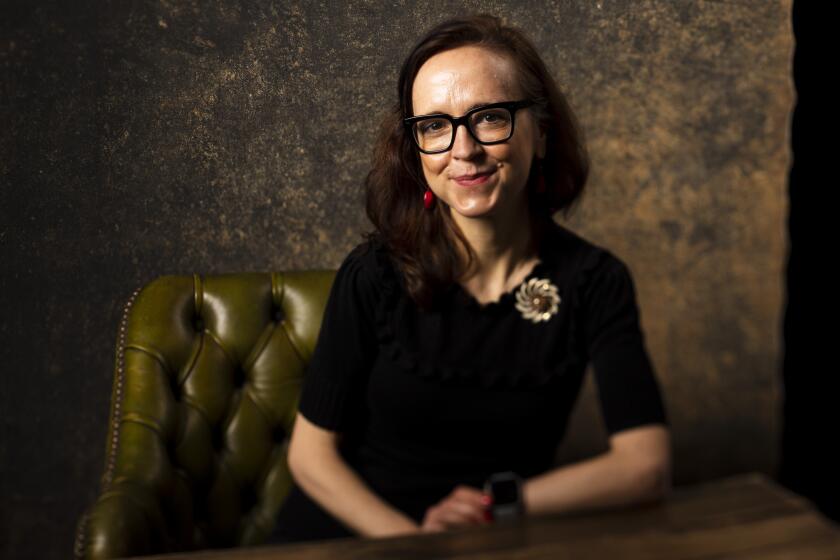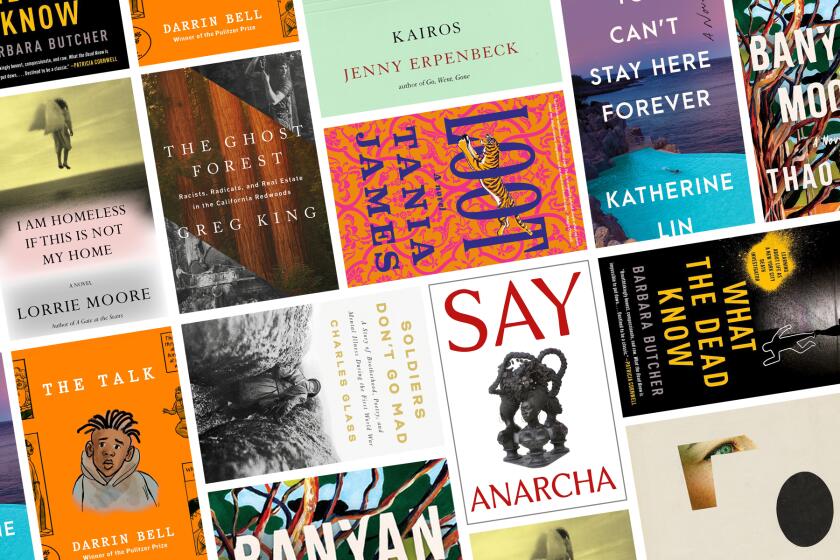A new novel distills a horror as old as “Frankenstein” and as fresh as Dobbs: Childbearing
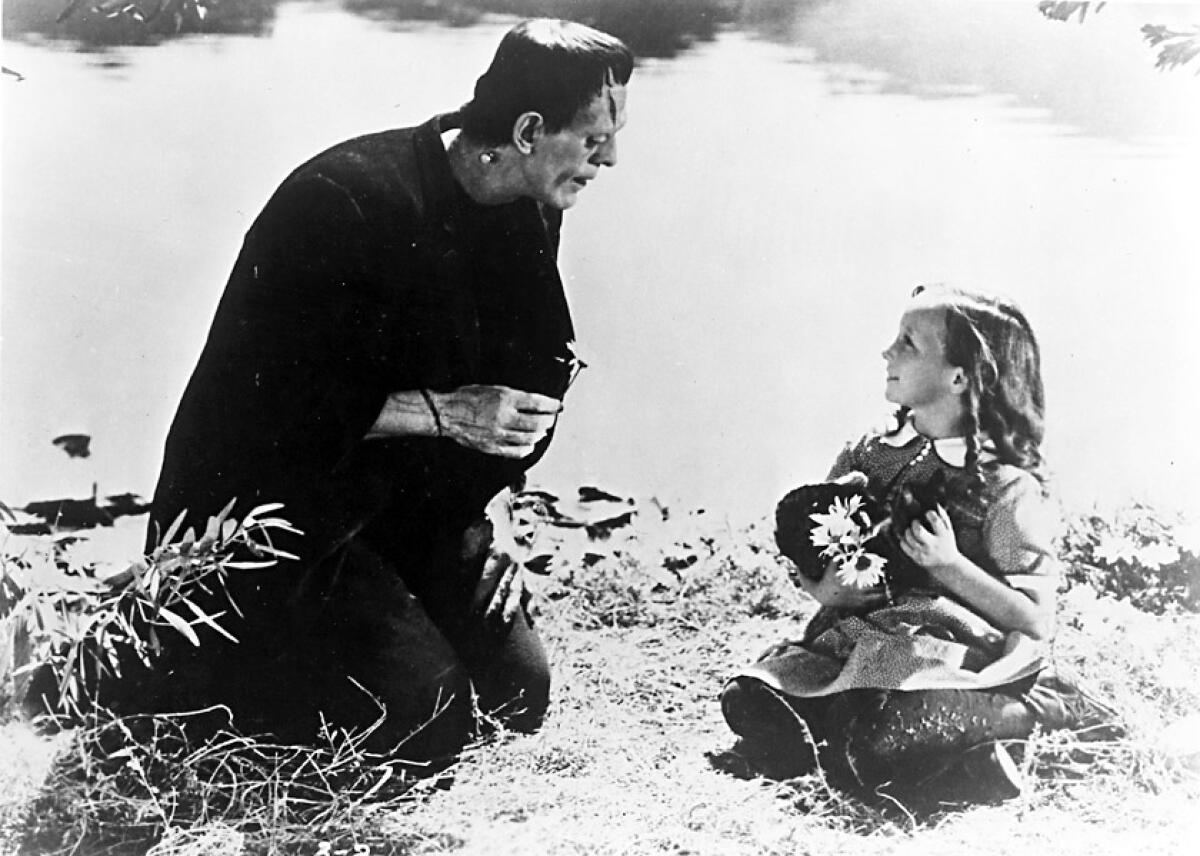
- Share via
Review
Reproduction
By Louisa Hall
Ecco: 224 pages, $30
If you buy books linked on our site, The Times may earn a commission from Bookshop.org, whose fees support independent bookstores.
The topic of motherhood and the monstrosities of the perinatal sphere — conception, pregnancy, birth and pregnancy loss — has become a fully fledged pop culture genre. Recent examples include the series “Dead Ringers,” starring Rachel Weisz as diabolical twin OB-GYNs, and Rachel Yoder’s 2021 novel, “Nightbitch,” currently being made into a film starring Amy Adams. Tokophobia, or fear of childbirth, is at an all-time high, according to a recent study. And it’s no surprise, given the U.S.’ high and rising maternal mortality rate — much higher for people of color. Add the overturning of Roe vs. Wade and the flurry of dangerous laws that followed, and we’ve got a real horror story on our hands.
Mary Shelley was well-acquainted with the dangers of pregnancy when she wrote “Frankenstein” in 1818. Already mother to two dead children, she’d barely survived a miscarriage before her son Percy was born in 1819. Thanks to the women’s movement and plenty of scholarship, beginning with Susan Gubar and Sandra Gilbert’s landmark feminist text “The Madwoman in the Attic,” “Frankenstein” is generally accepted as an allegory on the horrors of childbirth. Louisa Hall’s devastating and sharp new novel, “Reproduction,” works in the opposite direction, starting with motherhood and ending in science fiction.
Megan Abbott has made a career out of psychological thrillers involving women in competition. “Beware the Woman” takes a different — and timely — new turn
Hall is the author of three other books, two of which could be labeled science fiction: “Trinity,” on Robert Oppenheimer, the father of the atomic bomb, and “Speak,” on the dangers of AI. “Reproduction” has its own elements of science fiction, though the reader doesn’t discover them until the end. Genre categories aside, pregnancy and childbirth might be labeled science fiction if they weren’t so terrifyingly real.
Despite, or perhaps because of, having endured a miscarriage, our narrator writes, “I was still trying to write my novel about Mary Shelley.” Later, when her second pregnancy makes it to term, she is struck down by the force of her pain during birth. “And the awareness of my inability to describe what I was feeling only served to compound the helplessness of the experience, so that even in the minutes between the contractions, minutes when I wasn’t in pain, I lay there in the living room and felt as though I’d been exiled to a new kind of aloneness.”
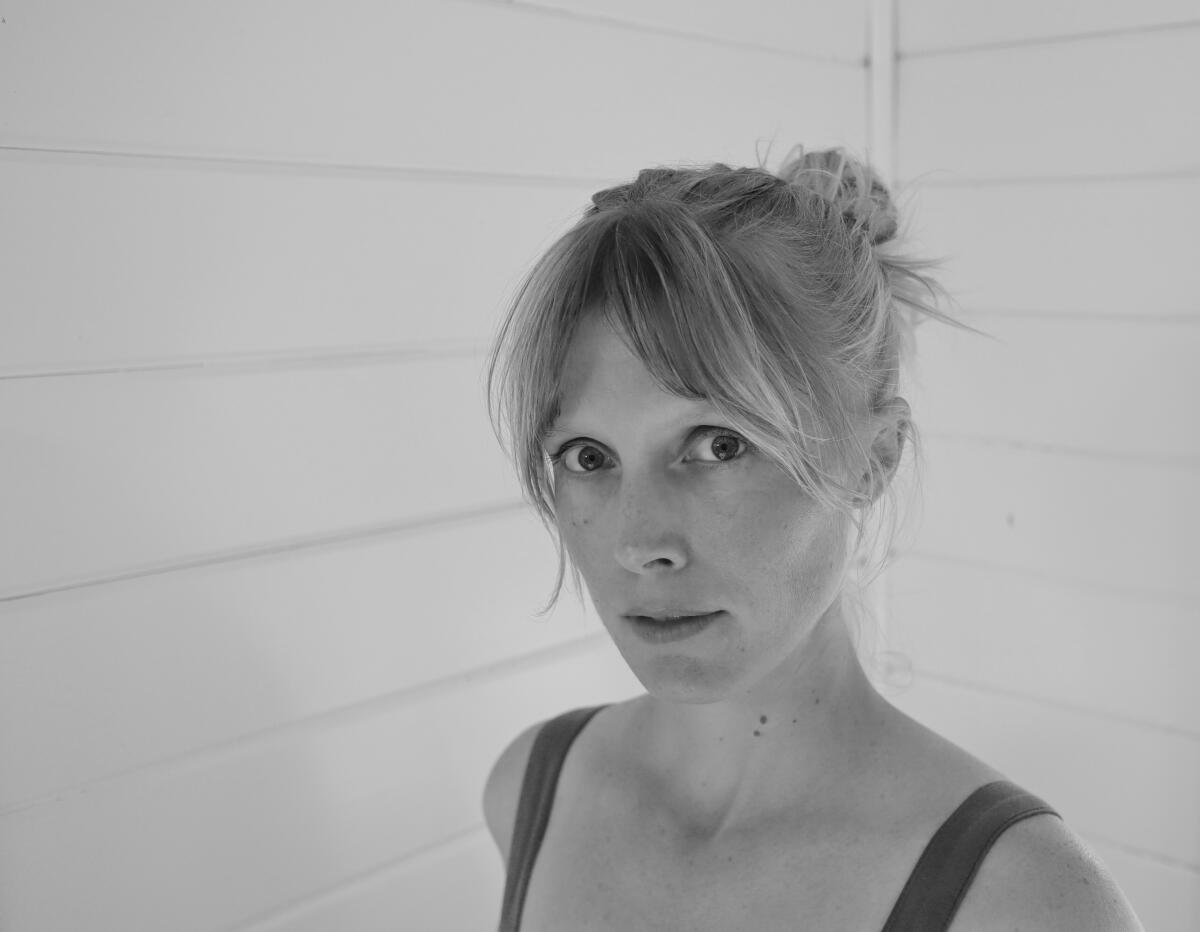
The word “alone” appears in this novel dozens of times: pregnancy and childbirth constitute an experience of being totally alone, an island unto oneself, an island made of pain.
Though there is solace in its honest depiction of pregnancy loss, “Reproduction” is not for the faint of heart. Childbearing in our culture is whitewashed into a time of bliss, but the reality is that childbirth, particularly in the medical system, is violent, bloody and even deadly.
Our narrator gives birth to a healthy baby girl and becomes pregnant again, for the third time. This miscarriage is more horrifying than the first. It turns out to have been a molar pregnancy, leaving behind tissue that could be cancerous. “Overnight, I’d started to bleed,” she writes. “The first blood was gray. There, in my underwear, I found a piece of fish skin, no bigger than a postage stamp.” When she learns from the doctor why the pregnancy failed, she asks her husband if he wants to know. The answer is a resounding no.
In the middle of her second novel, “Speak,” Louisa Hall quotes T.S.
Our narrator finishes her story in the novel’s third section, titled, “Science Fiction,” by telling us about the experience of someone else, her friend Anna, a scientist. In an extended backstory that is Rachel Cusk-ian in its detail and tone, Anna is revealed to us as curious and driven. But there is something off about Anna. After extricating herself from a toxic ex-boyfriend, Anna decides she’d like to have a child. Despite her efforts to create embryos for IVF, none of them are viable.
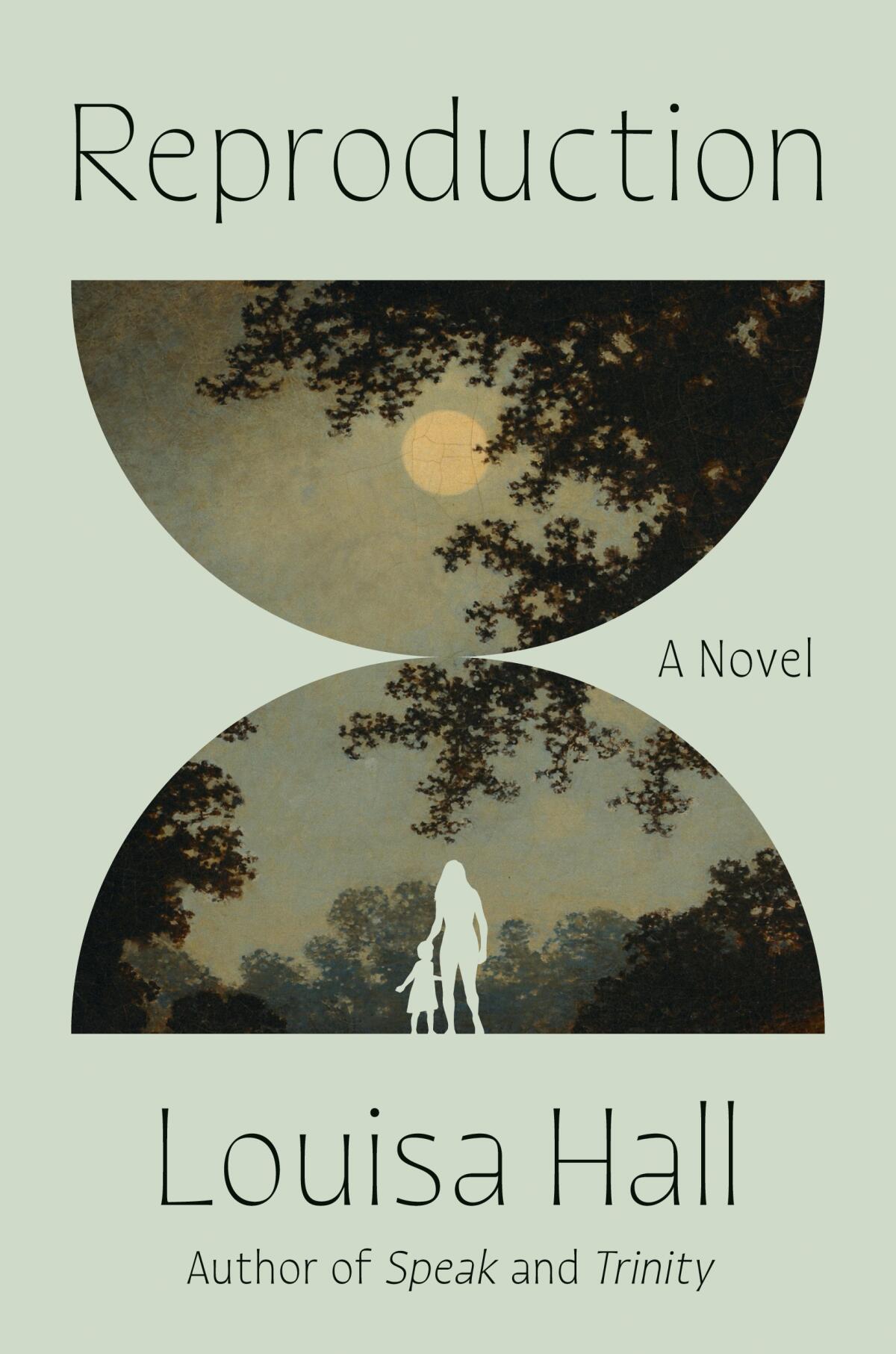
“Alone, in her apartment, preparing her syringe, getting ready to shoot herself full of hormones, she’d felt insane. As though she were a mad scientist, experimenting on her own body,” our narrator tells us of Anna’s struggles. “She’d hated everything her doctors said. She’d felt like their monster: out of control of her own body.”
Shelley made her mad scientist male for obvious reasons, but “Reproduction” assures us that the whole world has gone mad, regardless of gender: “What, after all, in these end times we live in, was still really ‘natural’ at all? . . . What was natural was death in childbirth. What was natural was high infant mortality.”
In the summer Shelley wrote “Frankenstein,” Mt. Tambora erupted in present-day Indonesia. Its volcanic ash remained in the atmosphere for three years, “darkening the sky, so that on several continents the warm growing season never arrived. It caused famines and a cholera epidemic that killed tens of millions of people,” our narrator relates. So much of her experience of pregnancy and its trauma (and Mary Shelley’s) is described as feeling like an alien on an inhospitable planet.
Bethanne Patrick’s 10 recommended books for June include long-awaited fiction from Lorrie Moore and Jenny Erpenbeck, strong debuts and surprising histories.
In the narrator’s day, which is also ours, “it was a grim time in the country at large. Every day, it seemed, there was a new mass shooting; every month, a Muslim ban was instated or overturned. And meanwhile, it was clear that the weather was changing.” The violence of this world is ever-present in “Reproduction.” One would have to be mad to bring a child into it.
“Reproduction” uses “Frankenstein” as its foundation to conclude with a science fiction story of its own, but what is more powerful about the book is how it captures the life-changing experience of pregnancy and birth. “Perhaps, I thought, that’s what it is to be a pregnant woman in this country,” the narrator writes. “To be the last man, setting off in his ship to find a new country.”
Ferri is the owner of Womb House Books and the author, most recently, of “Silent Cities San Francisco.”
More to Read
Sign up for our Book Club newsletter
Get the latest news, events and more from the Los Angeles Times Book Club, and help us get L.A. reading and talking.
You may occasionally receive promotional content from the Los Angeles Times.
